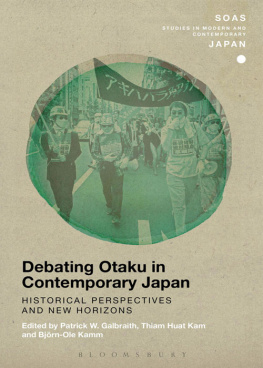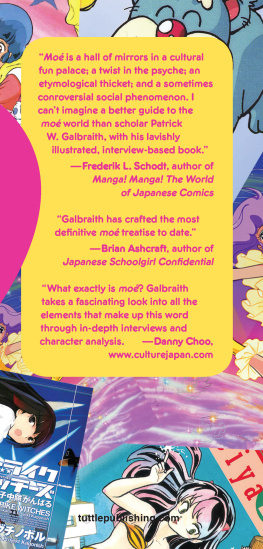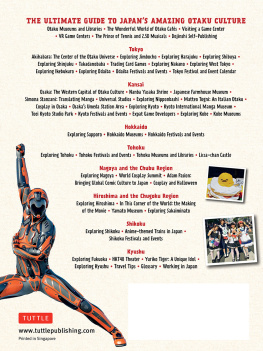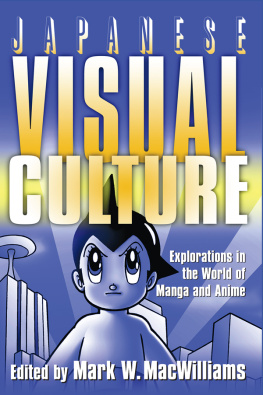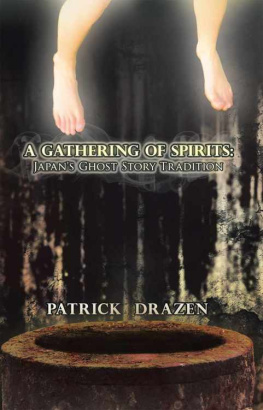SOAS Studies in Modern and Contemporary Japan
Series Editor: Christopher Gerteis, SOAS, University of London (UK)
Series Editorial Board:
Steve Dodd, SOAS, University of London (UK)
Andrew Gerstle, SOAS, University of London (UK)
Janet Hunter, London School of Economics and Political Science (UK)
Helen Macnaughtan, SOAS, University of London (UK)
Timon Screech, SOAS, University of London (UK)
Naoko Shimazu, Birkbeck, University of London (UK)
Published in association with the Japan Research Centre at the School of Oriental and African Studies, University of London, UK.
SOAS Studies in Modern and Contemporary Japan features scholarly books on modern and contemporary Japan, showcasing new research monographs as well as translations of scholarship not previously available in English. Its goal is to ensure that current, high quality research on Japan, its history, politics and culture, is made available to an English speaking audience. The series is made possible in part by generous grants from the Nippon Foundation and the Great Britain Sasakawa Foundation.
Published:
Women and Democracy in Cold War Japan, Jan Bardsley
Christianity and Imperialism in Modern Japan, Emily Anderson
The China Problem in Postwar Japan, Robert Hoppens
Media, Propaganda and Politics in 20th Century Japan, The Asahi Shimbun Company (translated by Barak Kushner)
Contemporary Sino-Japanese Relations on Screen, Griseldis Kirsch
Forthcoming:
The Self-Defense Forces and Civil Society in Postwar Japan, Tomoyuki Sasaki (2015)
Japanese Taiwan, edited by Andrew Morris (2015)
Politics and Power in 20th Century Japan, Mikuriya Takashi and Nakamura Takafusa (translated by Timothy S. George) (2015)

For those who came before, and those yet to come
Contents
Patrick W. Galbraith, Thiam Huat Kam and Bjrn-Ole Kamm
Patrick W. Galbraith
Yamanaka Tomomi
Bjrn-Ole Kamm
Lien Fan Shen
Okada Toshio
Aida Miho
Alisa Freedman
Okada Toshio
Thiam Huat Kam
Figures
Tables
Aida Miho is a Ph.D. candidate in International Studies at Hiroshima City University. Her areas of research include male and female fan cultures in Japan and otaku-related cultures and practices. In particular, she has studied the relationship between fujoshi and otaku through perspectives provided by gender and queer studies. Aida has published on a wide range of topics, including the space of identity at fanzine events, maid cafs and patterns of communication in contemporary Japan.
Alisa Freedman is Associate Professor of Japanese Literature and Film at the University of Oregon. Her books include Tokyo in Transit: Japanese Culture on the Rails and Road (Stanford University Press, 2011), an annotated translation of Kawabata Yasunaris The Scarlet Gang of Asakusa (University of California Press, 2005) and a co-edited volume on Modern Girls on the Go: Gender, Mobility, and Labor in Japan (Stanford University Press, 2013). She has authored articles and edited collections on Japanese modernism, urban studies, youth culture, gender discourses, television history and intersections of literature and digital media, along with publishing translations of Japanese novels and short stories.
Patrick W. Galbraith received his first Ph.D. in Information Studies from the University of Tokyo, and is currently pursuing a second Ph.D. in Cultural Anthropology at Duke University. He is the author of The Otaku Encyclopedia: An Insiders Guide to the Subculture of Cool Japan (Kodansha, 2009), Tokyo Realtime: Akihabara (White Rabbit Press, 2010), Otaku Spaces (Chin Music Press, 2012) and The Moe Manifesto: An Insiders Look at the Worlds of Manga, Anime and Gaming (Tuttle, 2014), as well as the co-editor of Idols and Celebrity in Japanese Media Culture (Palgrave, 2012).
Thiam Huat Kam is a Ph.D. candidate in Media Studies at the School of Communication and Information at Rutgers, the State University of New Jersey. His research interests include the logics and conditions of contemporary capitalism, the practices and politics of participatory consumption, and media fandom in Japan. He has published articles on otaku labelling and the common sense on consumption in Japan Forum (2013) and Japanese Studies (2013).
Bjrn-Ole Kamm received his Ph.D. in Japanese Studies from Heidelberg University (Cluster Asia and Europe), Germany, and is currently Senior Lecturer at the Kyoto University Graduate School of Letters. His studies on Japanese and German users of the so-called boys love genre were published as a monograph, Uses and Gratifications of Boys Love Manga (Kovac, 2010), and in the journal Transformative Works and Cultures (2013). Supported by fellowships from the German Institute for Japanese Studies, Tokyo (DIJ), the Friedrich Ebert Foundation and Kyoto University, his current work focuses on dynamics of inclusion and exclusion in networked communities of interest, the agency of stereotypes and cultural brokers within the transcultural sphere of roleplaying games.
Kikuchi Satoru is a professor in the Department of Cultural Information Theory and Social Science, Faculty of the Humanities, at Shinshu University. His research field is cognitive and educational psychology, and his current work investigates cognitive biases that affect the development and strengthening of pseudo-scientific and paranormal beliefs. He is a committee member of the Japan Skeptics Association and has published on a number of topics related to the occult, critical thinking, media use and effects, and biases and stereotypes prevailing in public discourse. His works include Teaching and Audiovisual Media Ver. 2 (Shichkaku media to kyiku hh, ver 2, 2006), The Psychology of Self-Deception (Jibun damashi no shinrigaku, 2008) and Why Do We Believe in Pseudo Science? (Naze giji kagaku wo shinjiru no ka, 2012).
Nishimura Keiko is a Ph.D. student in Communication Studies at the University of North Carolina at Chapel Hill. She received her masters degree in Japanese Studies from the Graduate Program in Global Studies at Sophia University. Her work focuses on human communication online and human interaction with automated programs. Recent publications include Social Media, Information and Political Activism in Japans 3.11 Crisis, coauthored with David H. Slater and Love Kindstrand (The Asia-Pacific Journal, Vol. 10, Issue 24, No. 1, 2012), and Where Program and Fantasy Meet: Female Fans Conversing with Character Bots in Japan (Transformative Works and Cultures, Vol. 12, 2013).
Okada Toshio is an anime producer, author and lecturer. He is a co-founder of Daicon Film, which produced legendary opening animation for science fiction conventions in 1981 and 1983, and General Products, one of the first stores to produce and sell garage kits. From this experience, Okada became the president of Gainax, where he worked on such classic anime as Royal Space Force: The Wings of Honneamise (1987), Gunbuster (19889) and Otaku no Video (1991). After leaving the company, Okada lectured on the topic of otaku culture at the University of Tokyo from 1994 to 1997. During this time, he wrote several books on otaku culture, including Introduction to Otakuology
Next page
